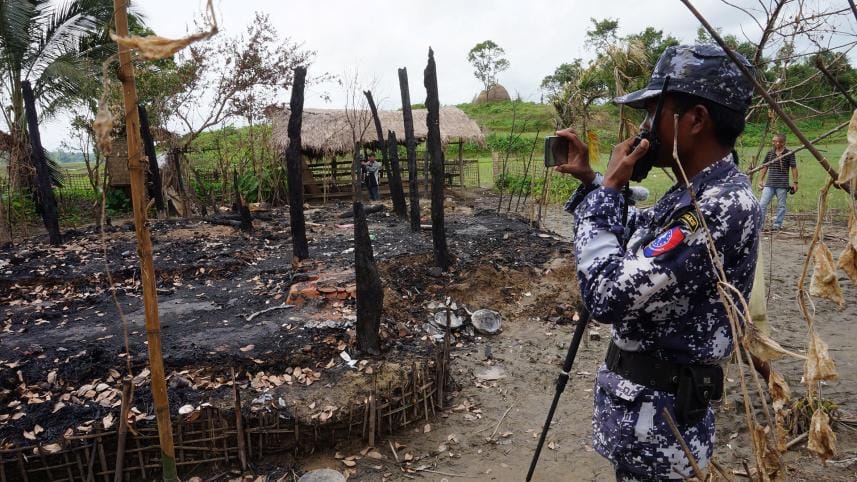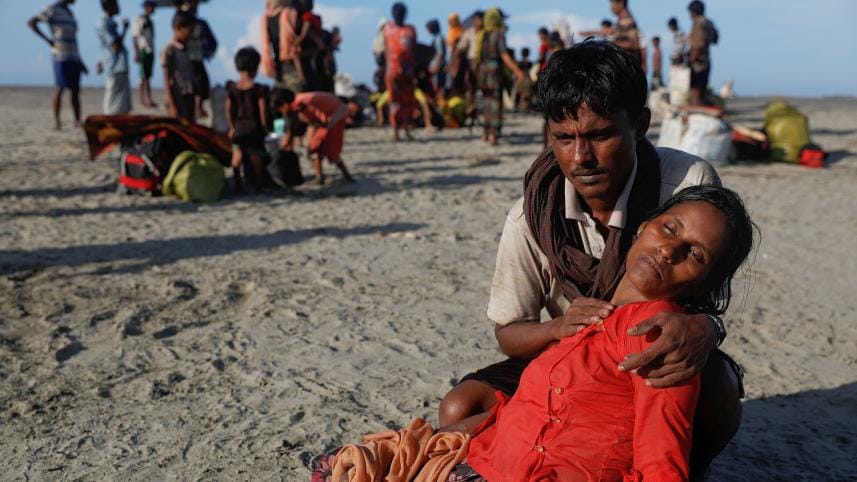Reuters publishes investigative report on how Myanmar military planned Rohingya purge

War crimes investigators got hold of thousands of pages of documents that shed new light on Myanmar's campaign to expel the country's ethnic minority -- the Rohingya, as well as efforts to hide the strategy from the world.
The group that collected the documents, many of which were shared with Reuters, is also handing over the material to prosecutors in the Hague, reports the Reuters investigative report by Poppy McPherson and Wa Lone.
In mid-2017, in a remote area of Myanmar, senior Tadmadaw (Myanmar military) commanders held secret meetings on operations against the Rohingya. They discussed methods to infiltrate their spies into Rohingya villages, resolved to demolish Muslim homes and mosques, and laid plans for what they "clinically" termed as "area clearance."
The discussions are encapsulated in official records seen by Reuters. At one meeting, commanders repeatedly used a racial slur for the Rohingya suggesting they are foreign interlopers: The "Bengalis," one said, had become "too daring." In another meeting, an officer said the Rohingya population became too much, the Reuters investigation reveals.
The military top dogs agreed to carefully coordinate communications so the army could penetrate "instantly during the crucial time." It was critical that operations were "unnoticeable" to protect the Myanmar military's image in the international community, they said.

Weeks later, the Myanmar military began a brutal crackdown that sent more than 700,000 Rohingya fleeing to Bangladesh. Ever since, the military has insisted the campaign was nothing but a legitimate counter-terrorism operation in response to attacks by Muslim militants, and not a planned program of ethnic cleansing, the investigative report added.
The country's civilian leader at the time, Nobel Peace Prize laureate Aung San Suu Kyi, dismissed much of the criticism of the military, by siding with them, saying refugees may have exaggerated abuses, and condemnations of the security forces were based on "unsubstantiated narratives."
But official records from the time ahead of and during the expulsion of the Rohingya, like the ones in 2017, paint a different picture.
The records are part of a cache of documents, collected by war crimes investigators and reviewed by Reuters, that reveal discussions and planning around the purges of the Rohingya population and efforts to hide military operations from the international community, reads the Reuters investigative report.
For the past four years, these war crimes investigators have been working in secrecy to compile evidence they hope to use to secure convictions in the International Court of Justice.

Documents spanning from 2013 to 2018 give an insight into the persecution and purge of the Rohingya from the perspective of the Burmese authorities, especially two "area clearance" operations in 2016 and 2017 that expelled about 800,000 people.
CIJA allowed Reuters to review many of the documents, which include internal military memos, chain-of-command lists, training manuals, policy papers and audiovisual materials. The organisation also asked Reuters not to disclose the location of its office for security reasons, the article said.
Through interviews with former Tadmadaw soldiers, Rohingya and Rakhine civilians and ex-government officials, and a review of social media and official statements, Reuters was able to independently corroborate many details in the documents.
Myanmar's military junta didn't respond to questions from Reuters.
(Read the full story here)



 For all latest news, follow The Daily Star's Google News channel.
For all latest news, follow The Daily Star's Google News channel.
Comments